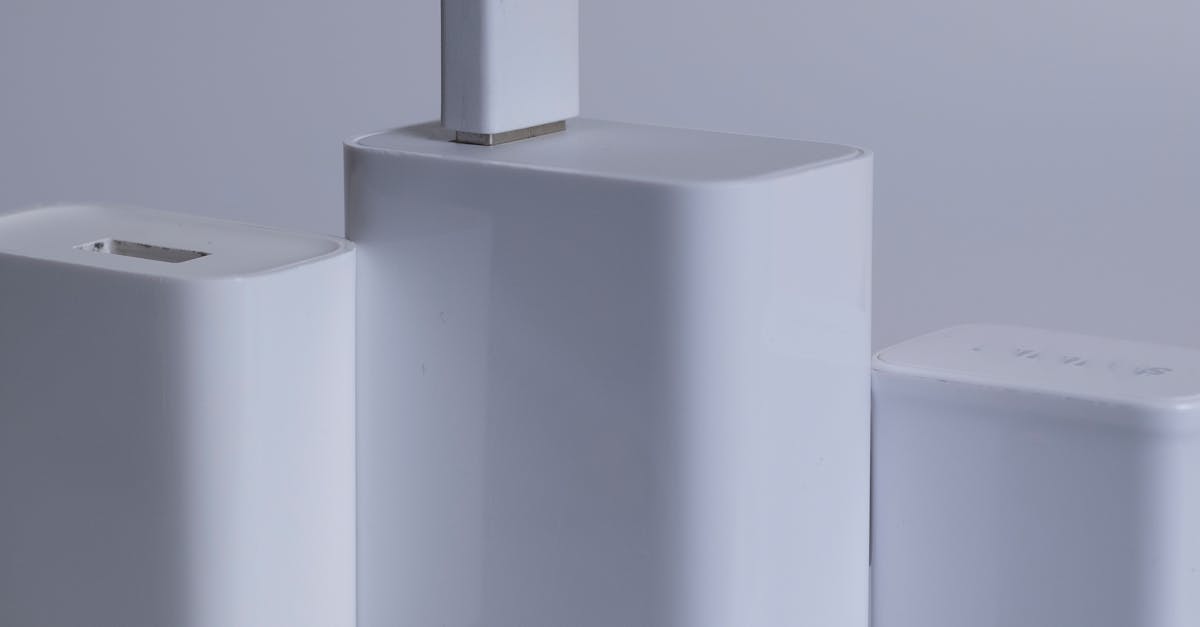
Review of the Top Energy-Efficient Lighting Solutions
The Role of Colour Temperature in Lighting Efficiency
Colour temperature significantly influences the perception of light quality and its efficiency in various environments. Measured in Kelvin (K), it ranges from warm light, around 2700K, to cool light, exceeding 5000K. Warmer tones create a cosy atmosphere, making them ideal for living rooms and bedrooms. Cooler temperatures enhance focus and attention, making them better suited for workspaces and areas requiring bright illumination. Understanding this spectrum helps in selecting the appropriate lighting to enhance both comfort and productivity.
Selecting the right colour temperature can also impact energy consumption. Soft white bulbs use less energy when producing the desired mood in living spaces, while daylight bulbs may promote effective work performance but can consume more wattage. By choosing the correct temperature for each specific area, households can optimise energy efficiency. Balancing light quality with energy use not only enhances the ambiance but also contributes to reduced utility bills.
Choosing the Right Colour for Your Space
Selecting the appropriate colour for a room can significantly influence not only its aesthetic appeal but also its functionality. Warm colours, such as soft yellows and oranges, can create a cosy atmosphere, making them ideal for spaces like living rooms and bedrooms. Cooler shades, including blues and greens, tend to evoke a calming effect, which works well in areas intended for relaxation, such as studies or reading corners. Understanding how different hues reflect light and create ambience will help in making informed choices that enhance the overall effectiveness of lighting.
Equally important is considering how the chosen colour interacts with natural and artificial lighting. A space flooded with natural light may benefit from lighter colours, which amplify brightness and openness. Conversely, rooms with limited natural light can appear more inviting when painted in warmer tones. Recognising the interplay between colours and lighting can guide individuals toward creating an environment that caters to their specific needs while maintaining energy efficiency throughout the space.
CostBenefit Analysis of EnergyEfficient Lighting
The transition to energy-efficient lighting represents a significant shift in both expenditure and potential savings for households and businesses. Initially, many consumers may be hesitant due to the seemingly higher costs associated with products like LED bulbs compared to traditional incandescent options. However, the longevity and reduced energy consumption of LEDs often translate into lower overall costs over time. While the upfront investment may be higher, the return on investment becomes apparent through reduced electricity bills and decreased frequency of bulb replacements.
electricity bills over time. Many consumers find that their initial outlay is swiftly offset by the lower expenses associated with energy-efficient models.
Long-term savings play a crucial role in evaluating energy-efficient lighting solutions. As these products use less electricity, they contribute to reduced carbon footprints, aligning with eco-friendly initiatives. Additionally, the steady decline in the price of LED technology continues to fade the gap between upfront costs and future savings. This dynamic often persuades individuals and businesses alike to invest in energy-efficient lighting, ultimately enhancing both budget management and environmental responsibility.
Tips for Maximising Energy Efficiency at Home
Assessing your lighting usage is essential for enhancing energy efficiency. Begin by evaluating the intensity and purpose of lighting in each room. Implementing a combination of natural light during the day and strategically placed fixtures can significantly reduce reliance on electricity. Consider using dimmable lights to adjust brightness based on the time of day or activity, which can lead to substantial energy conservation.
Investing in smart lighting systems provides the convenience of remote control and scheduling features, making it easier to manage energy consumption. Incorporate LED bulbs, which are known for their durability and low energy usage. Lastly, ensure all lights are turned off when not in use and utilise motion sensors in frequently occupied areas to further minimise waste. Adopting these practices can lead to a more sustainable and cost-efficient home environment.
Best Practices for Usage
Implementing energy-efficient lighting effectively requires understanding how to use it optimally. For instance, taking advantage of natural light during the day can significantly reduce reliance on artificial sources. Position mirrors strategically to reflect sunlight deeper into a room. Additionally, using dimmers allows for adjusting brightness according to the time of day or activity, contributing to further energy savings.
Regular maintenance plays a crucial role in maximising efficiency. Dusting light fixtures and replacing burnt-out bulbs promptly ensures optimal performance. Consider the use of smart lighting technologies, which permit remote control and scheduling. This can help reduce energy consumption by ensuring lights are used only when necessary. Addressing these aspects helps create a more sustainable living environment.
FAQS
What is energy-efficient lighting?
Energy-efficient lighting refers to lighting solutions that use less electricity to produce the same amount of light as traditional bulbs, helping to reduce energy consumption and lower utility bills.
How does colour temperature affect lighting efficiency?
Colour temperature affects the perceived brightness and warmth of light. Different temperatures can enhance or diminish the efficiency of lighting in a space, influencing mood and productivity.
What are the initial costs associated with energy-efficient lighting?
oundup of the Best Water Conservation Techniques
10 Benefits of Installing Green Roofs and Walls
The History of Sustainable Building Practices
Why High-Performance Insulation Matters for Energy Efficiency
Why Water Conservation Techniques Are Essential in Sustainable Building
What to Consider When Choosing Energy-Efficient Lighting Solutions
What to Know About High-Performance Insulation